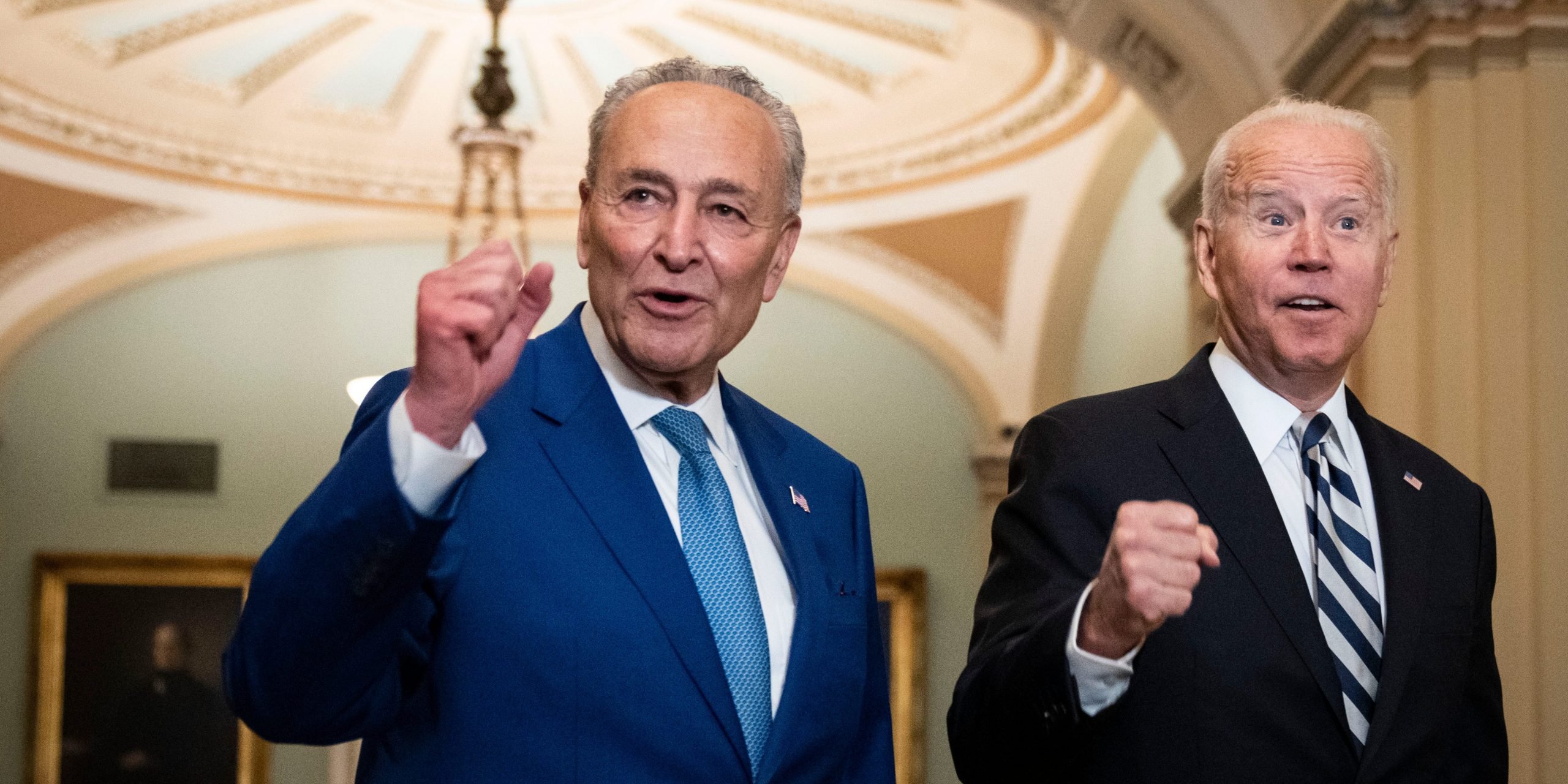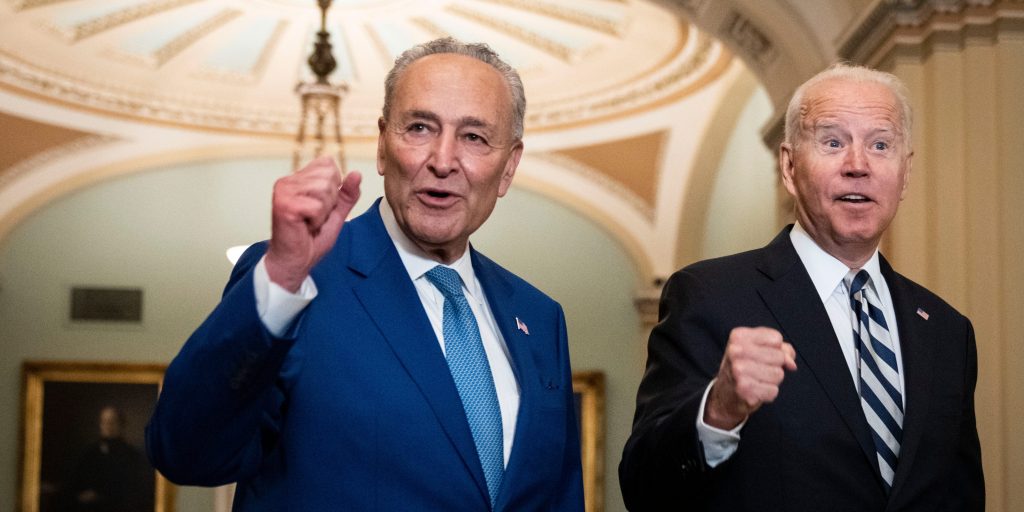
Drew Angerer/Getty Images
- The Senate approved a $1 trillion infrastructure bill on Tuesday in a bipartisan vote.
- The vote was 69-30, with 19 Republicans joining every Senate Democrat.
- The legislation now heads to the House for final approval.
- See more stories on Insider's business page.
The Senate approved a $1 trillion infrastructure bill on Tuesday, securing a major bipartisan victory for President Joe Biden and bringing him another step closer to achieving a key part of his economic agenda.
The 69-30 vote included 19 Republicans joining every Senate Democrat in support, including Senate Minority Leader Mitch McConnell. It paves the way for a massive infusion of federal money to repair roads, highways, and bridges, and improve broadband connections.
"The American people will now see the most robust injection of funds into infrastructure in decades," Senate Majority Leader Chuck Schumer said on the Senate floor shortly before the vote.
The bill now heads to the House, but its fate may be linked to a $3.5 trillion spending plan that Democrats want to push through in a separate process known as reconciliation. That's the pathway for some legislation to be fast-tracked with a simple majority of 51 votes instead of the usual 60 votes typically required.
Speaker Nancy Pelosi has said the House won't take up the bill until the Senate approves the party-line spending plan sometime this fall. Some House moderates are already demanding an immediate vote on the measure, even as concerns mount among progressives that the bill is insufficient, underscoring that Pelosi likely faces a delicate balancing act in the weeks ahead.
The infrastructure plan was forged through two months of negotiations between a bipartisan Senate gang and the White House. The centrist faction - made up of five GOP senators and five Democratic senators - toiled for weeks through many late-night meetings and Zoom calls. Clashes erupted over how to pay for the bill, prompting the group to ditch a measure stepping up IRS tax enforcement amid conservative backlash.
At times, it seemed that negotiations verged on collapse because of deep disagreement over the scope of spending and how to cover it. The group ultimately settled on repurposing coronavirus relief money and new cryptocurrency tax provisions for the largest chunk of funding.
The bill's passage also sets the stage for Democrats to turn their focus to the party-line spending package that proposes expanding Medicare, setting up tuition-free community college and affordable childcare, renewing a child allowance, and funding initiatives to combat the climate emergency. They rolled out the budget blueprint on Monday.
Senate Budget Committee chair Bernie Sanders of Vermont called it "the most consequential legislation" since the New Deal of the 1930s on Tuesday.

